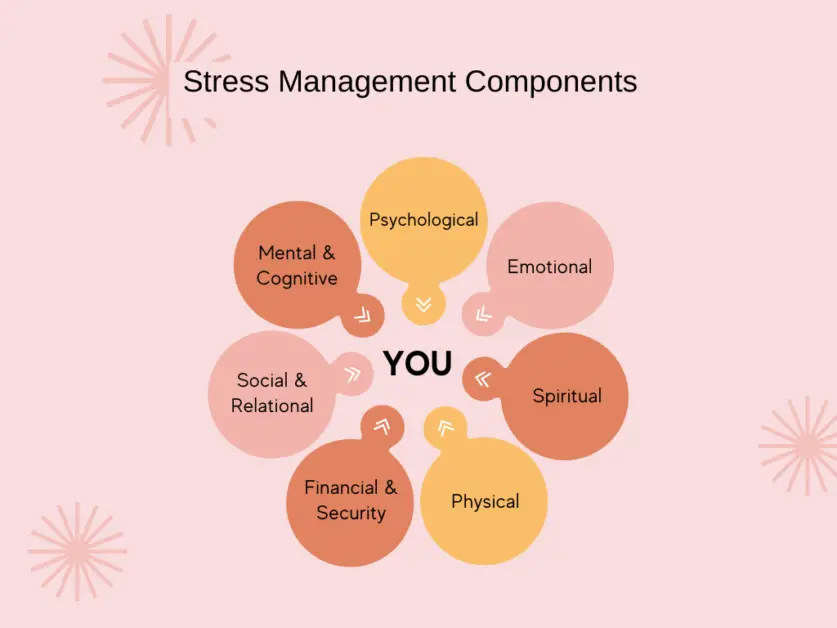What is Stress and How Can It Be Managed?
Stress is a natural part of life. Our fast-paced world constantly throws new challenges at us. How we see and react to these changes can shape how much stress we feel.
Everyone experiences stress differently. That’s because we all view situations in our own unique way. What feels overwhelming to one person might seem manageable to another.
That’s why learning how to cope is so important. Coping strategies help us handle stress—whether it’s calming our emotions or solving the problem causing it.
Psychologists Lazarus and Folkman explain that there are two main ways to cope with stress:
- Problem-focused coping – tackling the issue head-on.
- Emotion-focused coping – managing how we feel about the situation.
Problem-Focused Coping
Problem-focused coping is all about tackling stress at its source. This approach suggests that you should take action instead of just feeling stressed. You can change the situation or adjust your mindset.
This could mean asking for help, getting advice, or rethinking how you’re approaching the issue. The goal? To deal with the root of the problem so the stress doesn’t stick around.
Let’s say you’re struggling with a subject at school. Instead of staying stuck in worry, you might talk to your teacher, get tips from classmates, or look for extra resources. That’s problem-focused coping in action.
It’s also about how you think. Using cognitive restructuring—basically challenging negative or unhelpful thoughts—can help you see things more clearly and respond in a more productive way.
In short, this strategy is about doing what you can to fix the issue, not just ride out the stress.
Emotion-Focused Coping
Emotion-focused coping is designed to regulate emotional responses related to stress. This may involve avoiding negative thoughts or reappraising the situation, all while acknowledging that the stressful circumstances may not change. Acceptance plays a key role; individuals must recognize when a stressor is unchangeable and adjust their emotional responses accordingly.
Techniques such as distraction, meditation, and confiding in supportive friends help manage emotional reactions. Additionally, developing social skills and assertiveness enhances emotional regulation, while positive self-talk and cognitive restructuring help counter negative thinking.
Appraisal-Focused Coping
Not all stress comes from situations we can fix—but sometimes, we can change the way we look at those situations. That’s where appraisal-focused coping comes in. This strategy is all about shifting your mindset and reframing how you perceive challenges.
It starts with recognizing when a stressor is outside your control. Instead of constantly battling it, you learn to adjust your thoughts around it. A big part of this involves spotting negative thought patterns—and gently shutting them down. It’s about letting go of rigid thinking and adopting a more flexible, balanced perspective.
For example, imagine there’s a specific person or situation that always seems to trigger stress in you. Maybe it’s a coworker who rubs you the wrong way, or a social setting that makes you feel anxious. With appraisal-focused coping, instead of trying to change that person or avoid the situation entirely, you shift your own perspective. You accept the reality of what is—and work on transforming your thoughts and emotional responses.
You might think, “They don’t mean to upset me; it’s just their way of talking.”Or you might say, “This situation isn’t ideal, but I can manage it better this time.”
Appraisal-focused coping helps you feel more in control by changing how you think about and respond to stress, even when life is tough. It’s a powerful reminder that while we can’t always change what’s happening, we can change how we see it.
Improving Physical Health For Stress Management
Maintaining physical health is vital for robust stress management. Regular exercise significantly boosts mood and releases beneficial hormones, such as endorphins. Sleep is equally critical; inadequate sleep can intensify stress, creating a detrimental cycle. Taking regular breaks for mental rejuvenation and adhering to a balanced diet are also fundamental for sustaining both mental and physical health.
Stress Management at the Workplace
To effectively manage workplace stress, establishing psychological safety is paramount. This involves creating a culture of trust and respect, where employees can freely express their opinions, share ideas, and take risks without fear of backlash. When psychological safety thrives, employees feel empowered to be themselves, leading to reduced stress.
Stress Management is an Interplay of Many Factors
Effective stress management relies on the interplay of various factors—physical, spiritual, emotional, mental, and social—all of which significantly impact overall well-being. So, to manage it effectively, a wholesome approach is significant .
Nutritional care
Physical activity
Sleep hygiene
Social Interactions
Set boundaries
Learn to say no
Focus on inner strengths
Practice Gratitude
Hobbies/interests


Thanks for information